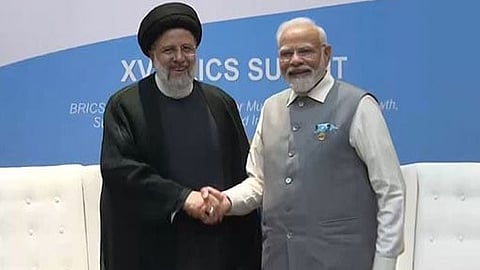

NEW DELHI: Prime Minister Narendra Modi spoke with Iranian President Masoud Pezeshkian today, voicing deep concern over the escalating Iran-Israel conflict, particularly as New Delhi is concerned about rising tensions threatening regional stability.
The 45-minute call, initiated by President Pezeshkian following US strikes on three key Iranian nuclear sites — Natanz, Isfahan, and the fortified Fordo facility, which Tehran claims are solely for civilian use — included a detailed briefing on the evolving situation.
During the conversation, Prime Minister Modi reaffirmed India’s position. “We discussed in detail the current situation. I expressed deep concern at the recent escalations. India reiterates its call for immediate de-escalation, dialogue and diplomacy as the way forward and for early restoration of regional peace, security and stability,” he said soon after the call.
President Pezeshkian described India as a friend and partner in promoting peace, security, and stability in the region. He expressed appreciation for India’s consistent stance advocating dialogue and diplomacy.
“India’s voice and role is important in restoring regional peace,” Pezeshkian told Modi, acknowledging New Delhi’s call for restraint as tensions between Iran, Israel, and the United States spiral.
Meanwhile, the wider geopolitical fallout of the conflict was evident, with Egypt’s Foreign Minister Badr Abdelatty cancelling his scheduled visit to New Delhi. The visit, initially planned for Monday and Tuesday, was postponed for the second time, reflecting how the rapidly shifting dynamics in the Middle East are impacting diplomatic engagements across the region.
The backdrop to this flurry of diplomacy is the U.S. military’s unprecedented strikes on Iranian nuclear sites. American stealth bombers dropped 30,000-pound bunker-buster bombs on facilities allegedly tied to Iran’s nuclear ambitions. Tehran, however, maintains the sites are strictly for civilian energy purposes.
India, which enjoys good ties with both Iran and Israel, is now carefully navigating a volatile regional landscape.